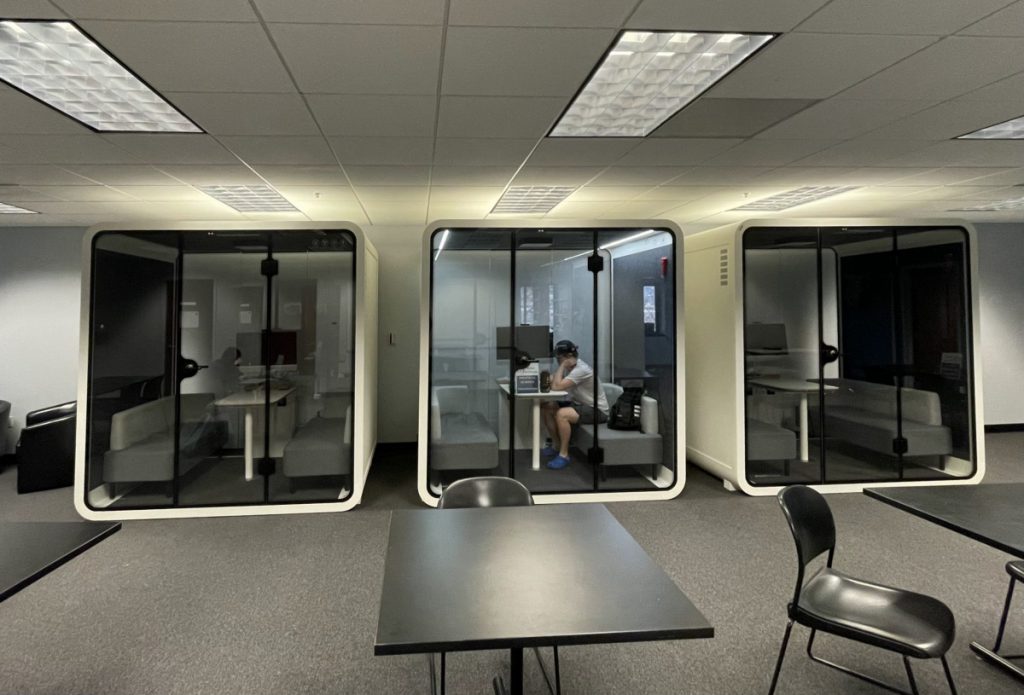MOLLY FANNEY
Staff Writer
Fiery riots across Ukraine have been occurring for months, and have yet to reach their pinnacle. Prompted by a massive bailout deal with Russia that was organized by current President Viktor Yanukovych in an effort to save Ukraine’s failing economy. The Ukrainian people are dissatisfied with the choices of an already corrupt government. Motivated by the hope that joining the European Union will lead Ukraine into modernity, the Ukrainian public, specifically the youth, are standing up and saying that they won’t have it anymore, even if it means dying for the chance of bettering their country.
Nick Jackson, the son of Professor of Communications Dr. Kathy Merlock Jackson, is a Peace Corps volunteer stationed in a Ukrainian village, Novoarkhanhelsk. In Jackson’s village, there is no hot water, no air conditioning, and some people have to use outhouses because they have no indoor plumbing.
“It’s like living in a slum,” said Dr. Jackson who went to visit her son last year. “Nothing in Ukraine works. Even though people seem to be content in their communities, people are not content with what they have.”
Nick Jackson emphasized that his village was very safe and there was only a small protest there, over the ownership of the local church. The situation in Kiev is much more grave. Protesters have lived outside on the streets of the city in makeshift communities.
“[Ukrainians] stand outside for hours in the freezing nighttime with no expectation of anything concrete actually happening, just showing support,” said Nick Jackson.
Most of Ukraine is like that; there are few paved roads outside of the big, modern cities. The greatest turmoil is not occurring in rural Ukraine though; it is in Kiev and the larger cities.
“People talk about it and argue now and again but it doesn’t go much beyond that” said Dr. Jackson. “The people that are really pro-EU and enthusiastic about changing things are younger or living further west.”
The violence has shown no sign of letting up. Just Tuesday night, Ukrainian police stormed the protesters’ camp in Kiev. There have been a total of 26 deaths so far, according to The Associated Press. Thousands of protesters filled the city’s center called Independence Square, sensing that the political turmoil was about to reach a turning point. As the crowds chanted “Glory to Ukraine,” police attacked with stun grenades and water cannons. While police burned the tent city to the ground, opposition leaders instructed protesters to hold their ground, and they did.
Yanukovych claims that the protesters set fires outside the parliament building, yet he has still not addressed any of the people’s commands.
One opposition leader claims that over 150 people are wounded. Leaders of the West are advising Yanukovych to give in to the people’s demands and to remove police forces, and for the most part appear to side with the repressed people. The European Union plans to take action on the conflict and sanction all those that are responsible.
What is happening in Ukraine is nothing the world hasn’t seen before. The unrest there can be compared to the global power struggle that occurred during the Cold War, according to Dr. Murrell Brooks, assistant professor of political science.
This decline in true democracy is closer to home than most would assume. According to Freedom House, 2013 was the eighth year in which the state of freedom in 54 countries has declined, a quickly rising number. The U.S. is a free country still, but the American people have already seen signals of its own democratic decline. Yet another comparison could be made between the NSA surveillance and the anti-protest laws enforced in Ukraine: both examples are clear violations of basic human rights.
“This has a direct impact on students” said Brooks. “Everything that is going on now is going to still be here 20 years from now. As students enter their thirties and forties they are going to be entering different positions of political power to clean up the mess.”

